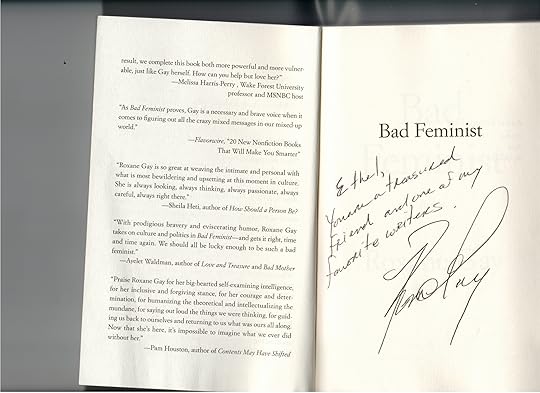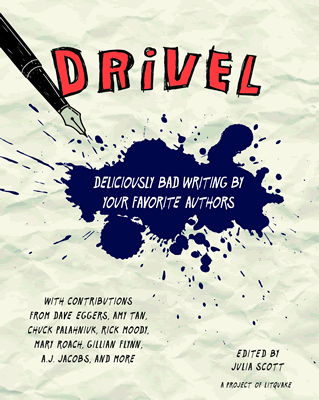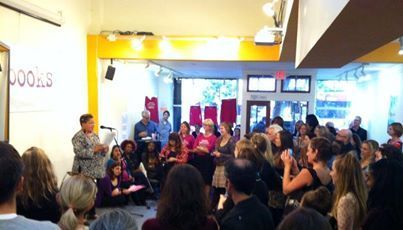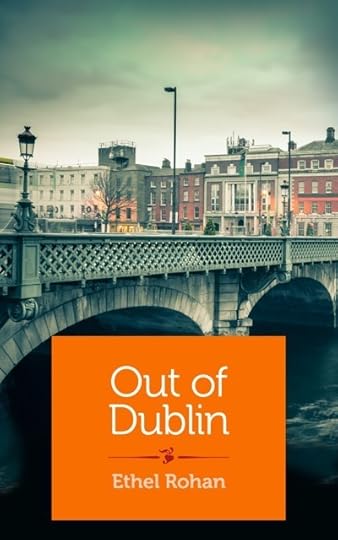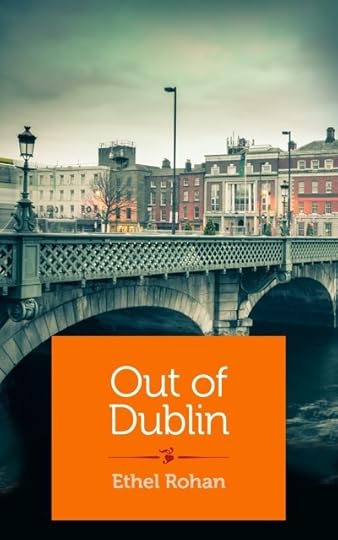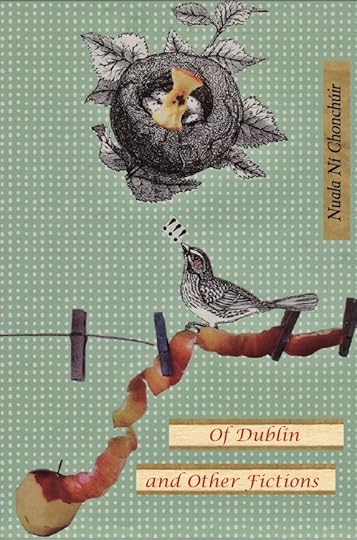Ethel Rohan's Blog, page 10
September 25, 2014
Glory Be to Gay
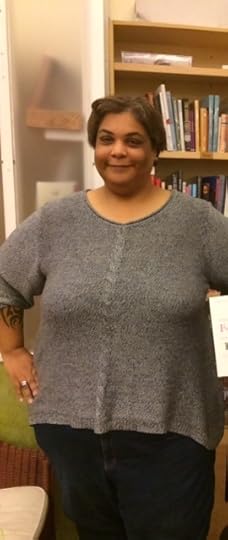 After six years of Internet friendship, I finally got to meet Roxane Gay last night at her excellent reading of Bad Feminist at a packed Mrs. Dalloway’s Books in Berkeley. She was everything I thought she would be, and more.
After six years of Internet friendship, I finally got to meet Roxane Gay last night at her excellent reading of Bad Feminist at a packed Mrs. Dalloway’s Books in Berkeley. She was everything I thought she would be, and more.
I’ve admired and respected Roxane’s work for years and felt excited to meet her at last. I didn’t expect to feel quite so awed or nervous, though. As I approached Roxane, I started to shake and that damned jaw of mine locked. In those moments before I spoke her name and introduced myself, I realized just how much I was struggling with feelings of unworthiness.
It’s almost surreal now, but five years ago I was in an online writing group with Roxane and exchanging emails about our lives and various concerns and highs, and now here she is, an acclaimed cultural commentator and a revered New York Times bestselling author. I felt wholly inadequate and worried I no longer had any right to lay claims to friendship.
My angst fell away, however, as soon as Roxane and I made eye contact. For all her height and stature, Roxane has these soft, lovely eyes that mirror an equally soft, lovely, and captivating voice. She and I both value our personal space and neither of us is big on hugs (although I’ve gotten much better in recent years), but we did hug and the connection felt warm and wonderful. I was at last meeting in the flesh a cherished friend, brilliant mind, and phenomenal spirit.
I loved sitting in that audience listening to Roxane speak and read, all of us rapt. She mesmerized me. I believe she mesmerized everyone there. She was funny, eloquent, honest, vulnerable, smart, and utterly seductive. She read about Mr. Rogers, female friendship, her ‘being’ Miss America, and her first year as a college professor. Even after an insane schedule of teaching, touring, writing, and interviewing, Roxane Gay delivered a stellar reading and Q &A with impressive generosity, grace, and gumption. Throughout, I nodded, laughed, nodded, shook my head, nodded, and uttered silent Amens. Yep, I fell star struck.
Roxane reads tonight in San Francisco at City Lights Books at 7 pm. I honestly don’t know how that small reading space will contain her and the crowd she’s going to attract. Get there early, friends, to avoid disappointment, and prepare for an extraordinary evening.
When I returned home last night, I read Roxane’s inscription and I tell you my eyes and throat filled. After, I went to bed and slept the best sleep I’ve enjoyed in a very long time. Thank you, Roxane. Shine on.
September 23, 2014
It’s Not (Always) You, But (Sometimes) the Editor
I recently enjoyed a week-long gig as guest editor for SmokeLong Quarterly Magazine, a revered publisher of flash fiction with a story limit of 1,000 words. The magazine editors charged me with choosing 1 story for publication from amongst all the submissions received in that week.
A record number of 84 stories came in, all of which I read blind. After a lot of reading and agonizing, I chose 1 story for publication and highly recommended 4 others. The winning story will publish on November 3rd and the 4 stories I also loved will be further considered for publication by the magazine editors.
Out of the 84 submissions, 16 stories rose to the top and I strongly considered each for the win. I read the 16 stories at least 3 times, ruthlessly rejecting until the strongest story, and the 4 ‘so damn close’ stories, emerged. Through the process, it became clear it’s often difficult to quantify what makes a story great, and much easier to identity why stories fail. It also became clear just how many factors go into selecting and rejecting work, not least of which is the personal tastes and biases of the editor, the aesthetics of the magazine, and the limited space available in any one issue.
Some stories I read once and knew immediately they weren’t working. The particular challenge of the short-short story is to craft with conciseness and precision work that conveys urgency and a sense of something at stake. The work and its character(s) must take risks and the character(s) must have a central desire. The work must also focus on an important moment in the character’s life. There has to be trouble. I noted, too, amongst the strongest stories I read that the writer utilized great imagination, language, obliqueness, and a compelling central image that threaded the entire piece.
The stories that didn’t work felt familiar and lackluster, and started too soon and finished too late. What was omitted in these stories wasn’t artful, but confusing and dissatisfying. With the exception of the two strongest stories, every story would have been strengthened by tightening (every word must count, must perform) and by deleting at least the last couple of sentences.
Ultimately, short-short work must–in the fewest possible words and with the most selective of craft choices–grip the reader and make us care.
September 8, 2014
Juice & Heart
This week I’m guest editor at Smokelong Quarterly Magazine. Full details here. Please send me a great story to read and publish.
August 29, 2014
Dragons
i’m tried. shattered, I would have written if I’d never left dublin. i’m thirsty and hungry. i feel small. i have a headache, splitting. all this and still i’m here. why?
i just read a wonderful review of goodnight nobody. it made me want to cry with relief. like thank god. someone’s still reading the book. someone’s still liking the book. books die almost as fast as the mayfly if they’re not read. the review made me feel the book is still alive, if only twitching.
i have so much work to do today, but i’m tired and my head hurts and i feel small and heavy. i work too hard. i need to rest. i have several readings coming up over the next four months. 9, i think. i don’t know what that has to do with anything, except right now all those readings feel like something else that’s wrong with me.
i have work coming out in several books. here. and here. and here. and here. and out of dublin will be published in print along with five other shebooks titles in their ‘best of’ anthology titled ‘whatever doesn’t kill you.’ and four months after publication out of dublin, the ebook single, remains a shebooks bestseller. i am beyond grateful. like smack me is this real grateful. still i’m not grateful enough. yearning. it’s a condition.
i’ve sent a short story ms to irish publishers. it contains 9 full-length short stories, all set in ireland. it would mean so very much to be published in ireland. like dream come true much. i’m about to send my novel ms to my agent, too. that’s also set in ireland. it hurts how much i’m hoping.
when i was in ireland over the summer i met two dragons. it’s a long, wild, and aptly magical story, but the details aren’t the point. the point is that i’ve always loved dragons. dragons, like fire, capture my imagination. the particular point is that pure chance allowed my two sisters and me to spend an unforgettable evening with these dragons. i was reminded good things can happen. reminded that sometimes people and the world are wonderful.
i rarely write here anymore. and this post feels like, well, drivel. but i felt this strong urge to write here today. i came back and in filling the blank page i heard the screaming. i’m not where i want to be. i want to get to someplace else. i’m hoping chance is reading.
wish me good luck, will you? and send some painkillers.
May 24, 2014
I Survived
Out of Dublin published last week. Its publication didn’t kill me, but it was difficult and painful. Part of me feels like a bad telltale. Grief still gnaws. There’s the fear that nips, who has read it? What will they think? What if it’s all meaningless?
Mostly, though, I feel a weight laid down. I’ve a better sense of closure now. A woman asked last night, “God, how do we survive?” We do. We’re amazing.
The responses I’ve received to Out of Dublin has been wonderful, thank you. Most of you have told me, I didn’t want it to end. Because I’ve mostly published short-short work, I hear that a lot. I’m working hard on a final revision of my novel. I hope that book will deliver the long, satisfying read so many of you have asked for over the years. That’s if I can finally figure out how to end the beast, and end it well.
This week, The Rumpus published an interview with me. My deep thanks to Liana Holmberg, Publisher, Red Bridge Press for her excellent questions and to Rebecca Rubenstein, Interviews Editor at The Rumpus.
Last night, Shebooks hosted their official launch party and showcased their new website and Equal Writes Kickstarter Campaign to raise money to pay ever more women writers. I read alongside 9 fellow and excellent Shebooks authors and we enjoyed a wonderful evening. I felt Out of Dublin, as tiny as it is, has value.
For those of you who asked, you don’t need a Kindle or Nook to read Out of Dublin. You can download the free Kindle app and read Out of Dublin or any Shebook on your phone, PC, or iPad.
For all their power and might, words often fail. I’ve always thought Thank you is wholly inadequate. There just isn’t enough heft and beauty and emotion to those two words. To those of you who continue to support me and my writing, I’ll leave you with this attempt to convey my deep gratitude: Stories, books, all art, would fail without witnesses.
April 20, 2014
My Book Cover, My Fear, Revealed
Out of Dublin, my forthcoming short memoir from Shebooks is just ten thousand words. Ten thousand of the hardest words I’ve ever laid down. I’ve felt similar pain, and fear and anxiety, when I published my chapbook, Hard to Say. Yet while there’s a lot of my past in those fifteen tiny linked stories, I wrote them as fiction peopled with characters, and with distance and imagination. Out of Dublin is a whole other beast. In Out of Dublin, there’s no where to hide.
That’s why I wrote Out of Dublin, though. I’m done with hiding, and with the unsaid. The unsaid has tormented me over decades. What price will I pay, though, for these ten thousand words. I’m frantic Out of Dublin will cost me family and friends, that some will criticize me for putting in print what they believe should stay private. I write, though. That’s what I do. I write about what matters most to me.
These past several months, the fourth commandment, Honor Thy Father and Thy Mother, has breathed on the back of my neck, chasing me. My parents would hate that I’ve written this book. That’s what presses on my chest, makes me panic. I’ve agonized. For me, it comes down to intention. My intention is not to dishonor my parents. I love my mother and my father. My intention is to make the truth into writing that’s artful and valuable, because the truth alone hurts too much and does no good.
I’m often scared and confused. I often don’t know if I’m doing the right or the wrong thing. I always try, though, to do my best. Recently, when I felt most afraid, most anxious, and most confused about publishing Out of Dublin, I made myself sit in my garden, and close my eyes, and listen to the birds, and feel the gold of the sun on my face, and even though I got calm and still, I didn’t feel or hear or see anything that seemed like a sign.
I had to make up my own mind, and I did.
It’s easier to look away from the hard things, to stay silent.
Easier isn’t enough for me. I decided to keep scaring myself.
April 13, 2014
One of my All-Time Favorites
This is my oldest daughter, just turned 15, with her lifelong friend, also 15. They are singing one of my all-time favorite songs, “Falling Slowly.”
January 22, 2014
The Short Story Uncovered
I will teach a six-session workshop on Sunday afternoons on the short story at San Francisco Writers’ Grotto. Class starts February 2nd and runs through March 16th.
I’m excited, and grateful the class is filling. Only two spaces remain. It’s a wonderful and diverse group of participants and I know we’ll do fine work together.
The first two sessions consist of brief in-class writing prompts and in-depth exploration of masterful short stories by American and international authors, including authors of color.
The final four sessions will be devoted to workshopping participants’ stories. At each workshop, I will use students’ stories to highlight craft lessons, with particular emphasis on character, action, consequences, and the atypical.
Participants are invited to share their work at a reading. The reading, limited to 3-minutes each, will take place on two Friday evenings, March 28 and April 4. I’ll confirm one of these dates for our class once we meet. This is a terrific event that students love. It’s a fast-paced and fun evening. Participants invite family and friends, and it’s always a full, appreciative house.
My bio and testimonials for my workshops follow. I’m deeply grateful to everyone below for his/her generous feedback.
Can I tempt you to join us? To register go here.
Testimonials:
I’m a poet. As far as I know, I’ve always been a poet. It’s the way I’ve chosen to tell my stories. But lately many of those stories have spilled over their boundaries, asking for something more than I’m able to give them. I knew I needed an entry into the intimidating world of fiction, and Ethel Rohan’s flash fiction workshop, during the Aboard Writers Conference in Ireland, was beyond perfect.
She was just the guide I needed — she made it easy tor realize the parallels between my poetry and longer prose works, and led stimulating group conversations that left me feeling more than capable of not only beginning work in a new genre, but in conquering it. In fact, I’m using two pieces crafted in her workshop as the basis for a new book of short prose pieces. She gave me that much confidence! –Patricia Smith, National Book Award Finalist and Winner of the Academy of American Poets 2013 Lenore Marshall Poetry Prize.
Ethel Rohan taught a two day workshop for Abroad Writers’ Conference at Lismore Castle. Her workshop was inspirational to all those who attended. National Book Award finalist Patricia Smith took Ethel’s workshop and she told me that it changed the way she thinks about writing. If you have the time, don’t miss this opportunity to work with Ethel. –Nancy Gerbault, Founder, Abroad Writers’ Conference
In Ethel Rohan’s workshop you will find the atypical in yourself and in other writers’ work. Ms. Rohan will help you analyze your text for its strengths and vulnerabilities. She will share short fiction from a variety of writers that will probably be new to you, and after reading these you will have a deeper understanding of what can be accomplished in a short story, or short short fiction. Most importantly, you will write in a safe, supportive environment and surprisingly, you will want to spill your guts. Rather, you will find them in a story Ms. Rohan will delicately help you craft. You will find the shifts within it. I can’t wait to work with her again. –Darothy Durkac, Winner, Abroad Writer’s Conference 2013 Flash Fiction Contest, Judge, Robert Olen Butler
I am privileged to have attended Ethel Rohan’s “The Brilliance of Brevity” course in Lismore, Ireland. Ethel’s two day workshop was my first introduction to flash fiction/non-fiction. Her empathetic technique, organization, examples, and prompts inspired me to produce two pieces I did not know I had in me. One is ready for submission and the other I continue to revise. It was a wonderful experience and increased my confidence as a writer. –Laurie Blanton
I am a non-fiction writer but, on a whim, decided to take Ethel’s Flash Fiction workshop. I was a bit nervous (fiction terrifies me) but Ethel’s knowledge, teaching approach, and encouragement had me believing that there might be a fiction writer inside me after all.--Kimberley Lovato
I recently took a class from Ethel Rohan in Ireland. I liked that she kept the class on focus and didn’t let other students begin talking about this and that and get off the subject. She gave each person her utmost attention and was able to make positive concrete suggestions. Our class was on brevity. Use one good word instead of five. So, it’s hard but I’ll pick just one word: enlightening. –Lee Lyons
I really enjoyed my recent workshop with Ethel Rohan on brevity. One of the great things about her workshops is accessibility to all genres. As a poet first, I loved learning how to reduce the number of words but to increase the power of the message. It was painful to delve into memories not often spoken of as material, but I came away from the experience with a better understanding of how important empathy is for a writer to have in order to welcome a reader in. –Rachael Ikins, poet, novelist, artist
Ethel teaches and directs her students with passion, patience and encouragement. She is a beacon in the dark, directing to that place only writing can take you to. –Maria FitzGerald Houlihan
I had the great pleasure of participating in Ethel Rohan’s “The Brilliance of Brevity” workshop at Lismore Castle (Ireland) on December 14th and 15th, 2013. Although Ethel’s workshop came at the tail end of an intense week of other writing classes, she managed to keep me highly engaged and stimulated throughout 2 days of reading, writing, and responding. The class was comprised of beginning writers and those who make their living at writing, younger and older writers, poets and fantasy writers, Irish and Americans, and Ethel managed to challenge and bring together this diverse group of writers.
It was obvious from the course design that Ethel had been meticulous in her preparation — from her thoughtful selection of short fiction and non-fiction readings (which effectively introduced or reinforced pedagogical points she was trying to make) to wonderfully-effective writing assignments, which quickly brought us, a temporary writing community, to a deep place. It was also impressive that Ethel participated in the writing exercises along with us, and wasn’t afraid to share her vulnerabilities as a writer, something that really helped me, as a novice writer, to participate fully.
After the workshop I picked up a collection of her short stories, and it’s been an immense pleasure to read her work (now that I’ve gotten to know the person behind the carefully-crafted words on the page) and to know that she’s not only a great teacher but a great writer as well.
I recommend Ethel without hesitation to writers of any level, and I look forward to participating in more of her writing workshops! –Peter C. Palo Alto, CA
Bio:
Ethel Rohan is the author of two story collections, Goodnight Nobody and Cut Through the Bone, the latter named a 2010 Notable Story Collection by The Story Prize. She is also the author of the chapbook, Hard to Say. Her e-book, a short memoir titled His Heartbeat in my Hand, is forthcoming from Shebooks in 2014.
Winner of the 2013 Bryan MacMahon Short Story Award, her work has or will appear in The New York Times, World Literature Today, PEN America, Tin House Online, The Irish Times, BREVITY Magazine, Post Road Magazine, and The Rumpus, among many others. She has reviewed books for New York Journal of Books, HTMLGiant, and elsewhere.
She has guest-lectured and/or taught writing at Book Passage, San Francisco State University, the San Francisco Writers’ Grotto, and the Frank O’Connor International Short Story Festival, among others. Most recently, she served on faculty alongside the Pulitzer Prize-winning authors Jane Smiley, Edward Humes, and Robert Olen Butler, and more, at the winter 2013 Abroad Writers’ Conference in Lismore Castle, Ireland.
She received her MFA in fiction from Mills College, CA, 2004. Raised in Dublin, Ireland, Ethel Rohan now lives in San Francisco where she is a member of The Writers’ Grotto and PEN American Center.
November 11, 2013
Of Dublin and Other Fictions
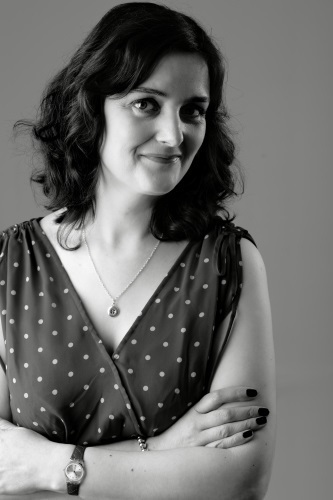 Welcome, Nuala Ní Chonchúir. Nuala lives in Galway. Her fourth short story collection Mother America was published by New Island in 2012. A chapbook of short-short stories Of Dublin and Other Fictions is just out in the US and Nuala’s second novel The Closet of Savage Mementos will be published in spring 2014 by New Island.
Welcome, Nuala Ní Chonchúir. Nuala lives in Galway. Her fourth short story collection Mother America was published by New Island in 2012. A chapbook of short-short stories Of Dublin and Other Fictions is just out in the US and Nuala’s second novel The Closet of Savage Mementos will be published in spring 2014 by New Island.
We’re here today to talk about Of Dublin and Other Fictions. Book buying info here.
I’m especially struck in several of these stories by personification and how convincingly and vividly you humanize the inanimate and bring it alive. For example, the moving and talking statue in “Jesus of Dublin” and the murmuring road in “The Road that Mills and Boon® Built”. Can you talk about this craft choice and in particular what you believe it brings to the stories?
In a way it is not a craft choice as such, it’s more that stories come to me in a certain way. I went to school on Marlborough Street in Dublin’s city centre, so the O’Connell Street Jesus statue has been part of my life since I was very young. I wondered what he’d say if he could talk and his voice arrived in my ear as a Noel Purcellesque rasp. It’s probably because I’m Irish, but the idea of a talking statue is not that crazy-seeming.
As for the Mills and Boon built road, that speaks like a Mills and Boon novel, that idea occurred to me the moment I was told that the A3 in England was partially built using those books. That’s a gift of an anecdote for a writer.
What does personification bring to the stories? A touch of surreal humour, I hope.
I also appreciated the many powerful moments throughout of voyeurism and the ensuing stolen moments of intimacy. I’m thinking in particular of characters like those in “Fish” and “Room 313″ who feel compelled to trespass and to witness what they shouldn’t. These great moments made me think of the writer and our compulsion to push into the unseen and the hidden. Can you share your thoughts on your voyeuristic characters? Also, your thoughts on the writer as an intrusive “seer”.
The older I get the less brave I get in the real world (the dawning of sense – at last! Maybe…) so I guess I can live vicariously through these characters who are a bit more audacious than I am these days. The chambermaid in ‘Room 313’ tries on one guest’s slinky undies. When I worked in hotels as a student I would never have done that, but I will admit to spraying on the odd squirt of perfume. The chambermaid is always going to be less well off than the guests in a hotel so I was highlighting that – she was trying on Coco’s life for size.
In ‘Fish’ the two characters bare all in one way and then one hopes that they will take that further.
Writers are natural nosey-parkers – we want to know the ins and outs of everything we witness; we are compelled to make sense of all we see. That inquisitiveness gets pushed into all sorts of places we may rather not go, but writing is our compulsion, so on we have to go.
Your work reads as honest and brave, Nuala, unafraid to tell character and life as it is. Are you ever fearful of the raw and shocking moments that come out in your stories? I know I often suffer from the inner critic that gasps and says, ‘You can’t write that.’ Then there are the other voices, ‘You can’t publish that.’ ‘What will X think?’ I have a lot of ‘Xs’ in my life and inner critics in my head that try to cow me into holding back in my work. Can you relate to such fears? How do you push through?
Yes, I certainly relate. I cringe as I write from time to time, and I edit bits out as I read at readings sometimes, if I think a curse word or incident is too full on for that particular audience. Lately, though, I read at the Gort Gathering – I read ‘Penny and Leo and Married Bliss’ which is a 21st century re-imagining of Molly Bloom’s soliloquy. Afterwards I approached an elderly nun and said, ‘I hope you’re not scandalised.’ She gripped me by the arm and said, ‘I’ve heard worse and I’ve seen worse. It was marvellous.’ So we can misjudge our audience, often.
There are things I won’t write about, though, that I would like to. Not every family story is ours to share and I have to respect that.
You meld several different kinds of stories together in this tiny book: gritty realism, magic realism, and contemporary and historical fiction. How did you compile this eclectic collection and how did you decide upon it being a chapbook versus gathering a full-length story collection?
Jodi Chilson at Tower Press approached me to see if I would do a poetry chapbook with them. I had no poems, so I offered her a collection of flash. Then it was a matter of seeing what I had and eliminating those that were promised elsewhere, or that weren’t good enough.
It was also said to me (by the organiser of a short story collection prize) that it may not be a great idea to include flash in a full collection of short stories because people are put off by them. I’m not sure if that is true, but I thought this was a nice way to get some flash out into the world.
Which segues into how prolific you are. You write poetry, novels, and short stories, and I believe this is your tenth if not eleventh book. Can you share with us your writing routine and life and how you feed your imagination and creative spirit.
People are always saying I’m prolific, so it must be true  For my part, I wonder what other writers I know do all the time…
For my part, I wonder what other writers I know do all the time…
I write for 3 hours every morning while my kids are at college/school/crèche respectively. I do other stuff in the afternoons: reviewing, editing, mentoring, submissions, essays, interviews etc. I like working; I like being busy.
I have engineered my life this way: I am willing to earn little money to do what I love. The bonuses for me are that I am my own boss, I get to travel a lot, I get to be with my kids a lot and I make new friends all the time. Downsides? Loneliness. But I’m a loner anyway, so it’s not a huge downside.
You write poetry in both English and Gaeilge. How different is that experience and the work? Does one inform the other?
I feel like a fraud with this one. I have written a few poems in Irish. I have translated a few of my English poems into Irish. That’s the size of it, really. I love Irish but am so busy with all my other writing, it just doesn’t get a look in. I love translating – I’d like to do more of that.
I believe this is your first time to publish with a US press, Tower Press. Can you talk about this publishing experience and how it compares to your previous books, which I think are all published by Irish presses.
My collection Nude was published by Salt in the UK and I did a poetry chapbook with Templar, also in the UK . Otherwise, it has been Irish publishers.
It’s been fun with Tower Press – a very quick turn around and I got to go to San Francisco for the launch, which was pretty cool. Tower Press are brand new – my chapbook is their first publication – so they are learning as they go. I have vast experience, though, of dealing with publishers and one thing you have to have is patience with them, one and all. They are busy, busy people and you are not, generally, their only writer, so you have to understand that and you must help your publisher (no matter how big or small) to sell your book.
What’s next?
My second novel The Closet of Savage Mementos comes out with New Island in April 2014, which is pretty exciting. It’s set in the Scottish Highlands and Dublin, and it concerns Lillis Yourell, a 21 year old Dub who gets into a relationship with a Scottish man 30 years older than her. Fun and games and tragedy. Lots of craggy mountains and fierce passion. Whey –hey!
November 8, 2013
“Through the Throat”
is my Sunday Rumpus essay. My heart was hurt in the making of it. Sometimes we have to hurt to heal. I’m glad I wrote it. I’m glad I published it. I’m glad to see Dad’s photos and pen name published. He would have gotten a kick out of that. He would have loved to reach so many people with his stories, recounted here in the essay. He would have loved to live longer. I’m still sad he didn’t. Still sad my parents suffered so much in life and in death. I’m working hard to let the sadness go, to say Amen and Peace and Goodbye.
An excerpt:
“This past July, I stood over my father’s hospital bed and contemplated suffocating him with his pillow. Five weeks earlier, Dad had walked into hospital in his good clothes, uneven shoe heels, and with his small bag of belongings hanging from his large, gardener’s hand—a fit and hale seventy-eight year old man still graced with his full faculties. He felt afraid and irritable, nervous about his surgery to treat an aortic aneurism in his abdomen but hoping to recover and return home.” Continue reading…

